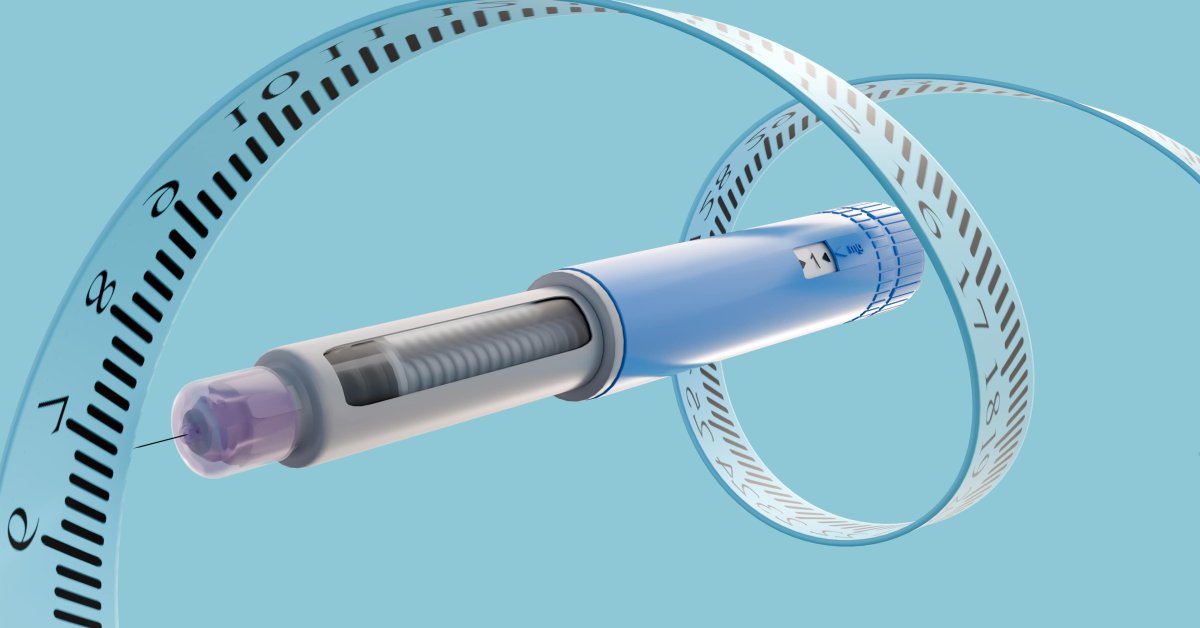GLP-1 medications have taken America by storm, moving beyond clinical tools and becoming status symbols. Once accessible to only the wealthy and well-connected, they are now prescribed in clinics across America. For millions who struggle with sustainable weight loss, these medications have provided hope, especially after diet and exercise alone have failed. In fact, a 2024 survey found that one in eight Americans have taken them.
People are shedding weight faster than ever before—but as the pounds melt away, what else might patients be losing?
As a doctor myself, I have sat across from patients in the emergency department who were thrilled by how fast they were losing weight–until they experienced nausea that would not go away. In one instance, I ordered CT scans which revealed medical complications no injectable could undo. My colleagues and I have watched people stop eating all together, because the medication made hunger seem foreign.
To be clear, I am not condemning weight-loss drugs or the people who take them. But we need to confront the high price we often overlook in the race to get skinny. We should ask critical questions now because we are at a cultural crossroads. And as these medications redefine medicine, perceived body image, and healthcare access, we must reckon with the medical and psychological fall out left behind.
Some people are trading medical risks for the cultural reward of becoming thin—chasing a body ideal without always understanding the hidden cost. The question is: How should we think about rapid weight loss when the long-term side effects, both physical and psychological, are still coming into focus?
Read More: The Health Risks and Benefits of Weight-Loss Drugs
From The Real Housewives to Reddit forums, where unofficial dosing schedules are shared between online users, GLP-1 drugs are everywhere. These medications give us a lens into how we view body image, class, and identity. And as celebrities post striking transformation photos on social media, they drive demand for rapid results.
But these medications were originally developed to help people with diabetes manage their blood sugar. Now, the cultural rush for thinness is reshaping who gets access to drugs which were once reserved for chronic illness. And while most insurances cover the medication for diabetes, weight loss treatment is frequently out-of-pocket—and the prices vary widely.
Emergency departments are managing more and more of the side-effects of society’s obsession with weight loss. A recent Annals of Internal Medicine study reported that nearly 25,000 ER visits between 2022 and 2023 were linked to GLP-1 medications. Once serious complication is gastroparesis, a condition where the stomach slows down and stops emptying properly, leading to bloating, nausea, and intense pain. A large JAMA-published study of approximately 16 millions U.S. patients found that those who used GLP-1 drugs were nearly four times more likely to develop gastroparesis, and nearly 5% of all patients who take these drugs develop serious side effects. Some patients experience bowel blockages or inflammation of the pancreas—a painful and potentially dangerous condition known as pancreatitis.
Read More: Ozempic Hurts the Fight Against Eating Disorders
But beyond the physical symptoms is an often harder to diagnose concern: how these medications can mask or worsen behavioral health issues like eating disorders. GLP-1 medications are designed to reduce hunger, but that same appetite-suppressing effect can intensify restrictive eating behaviors or even ignite new disorders. As the Guardian reported, clinicians have coined the concerning term “drug-induced anorexia” to describe the designed positive effects of feeling full can unintentionally power eating disorders. Not all weight loss providers, whether treating patients in person or online, screen patients for eating disorders prior to enrollment. In many cases, there are not enough questions asked or adequate follow-up provided.
As a doctor, I am trained to treat symptoms. But as a person, I cannot help but wonder: What if the symptom is our obsession with changing our bodies and the belief that thinner is always better?
Today, skinny can come via syringe, but that does not guarantee a healthy life. Before we chase thinness through medications we need to ask: Is the body broken, or is it the mirror we’re all looking into?
Losing weight is a choice. But it should never be made because of society’s aesthetic obsession with thinness—or without knowing the full costs.

